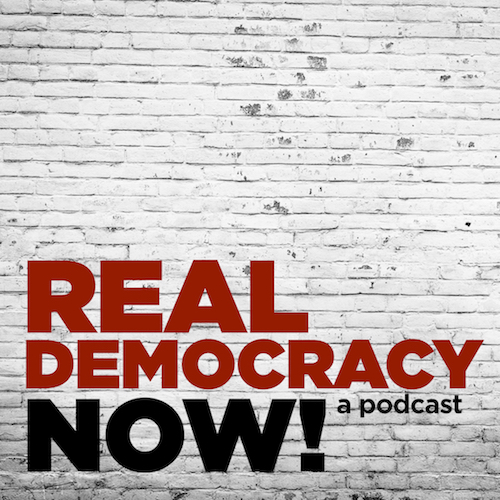Month: May 2017
Welcome to episode 9 in season 2 of Real Democracy Now! A podcast.
In today’s episode, I’m talking to Associate Professor Sofia Näsström from the Department of Government, at the Uppsala University in Sweden. Sofia works in the field of political theory, with a particular focus on issues related to democracy, constituent power, the people, the right to have rights, representation, freedom and precarity. She is currently working on a monograph entitled The Spirit of Democracy: Thinking Democracy beyond the Nation-State.
Sofia is a democratic theorist and I talk with her about who is being represented in representative democracies, the difference between democratic and non-democratic representation and her work identifying the spirit of democracy.
Sofia will also be part of a later episode considering the relationship between democracy and capitalism. In next week’s episode, I will be move from considering theory by taking an ‘empirical turn’ with Professor John Keane talking his work on monitory democracy. I hope you’ll join me then.
Today I’m speaking with Professor Archon Fung. Professor Fung is the Ford Foundation Professor of Democracy and Citizenship in the John F. Kennedy School of Government at Harvard University.
I talk to Professor Fung about the concept of ‘pragmatic democracy’ which he describes as being focused on outcomes and then looking at different approaches to democracy to determine which ones will get us closer to those outcomes. In some ways, this approach is similar to the problem-based approach described by Professor Warren in the last episode. He also expands on his article Our desperate need to save US democracy from ourselves from December 2016.
Today I’m speaking with Professor Mark Warren. Mark is the Harold and Dorrie Merilees Chair in the Study of Democracy in the Department of Political Science at the University of British Columbia where he established the Centre for the Study of Democratic Institutions.
- empowered inclusion
- collective will formation and
- the ability to make collective decisions.
He notes that different democratic practices are better at delivering some of these than others and so we should be looking a mix of practices to complement each other and deliver all three functions. He proposes supplementing and layering innovations on top of electoral democracy to create stronger democracies.
